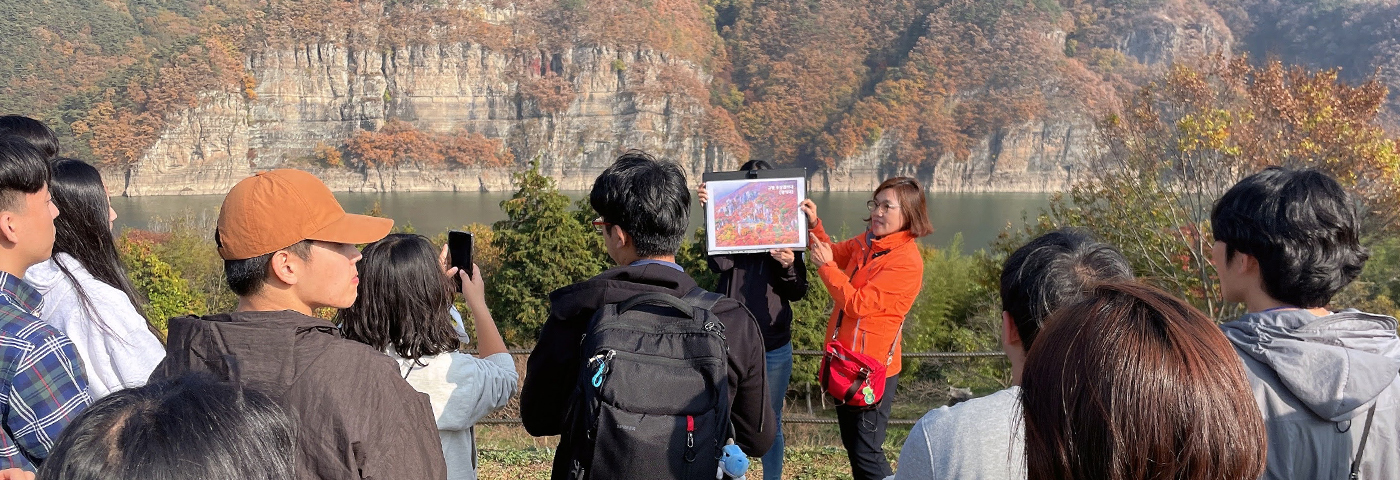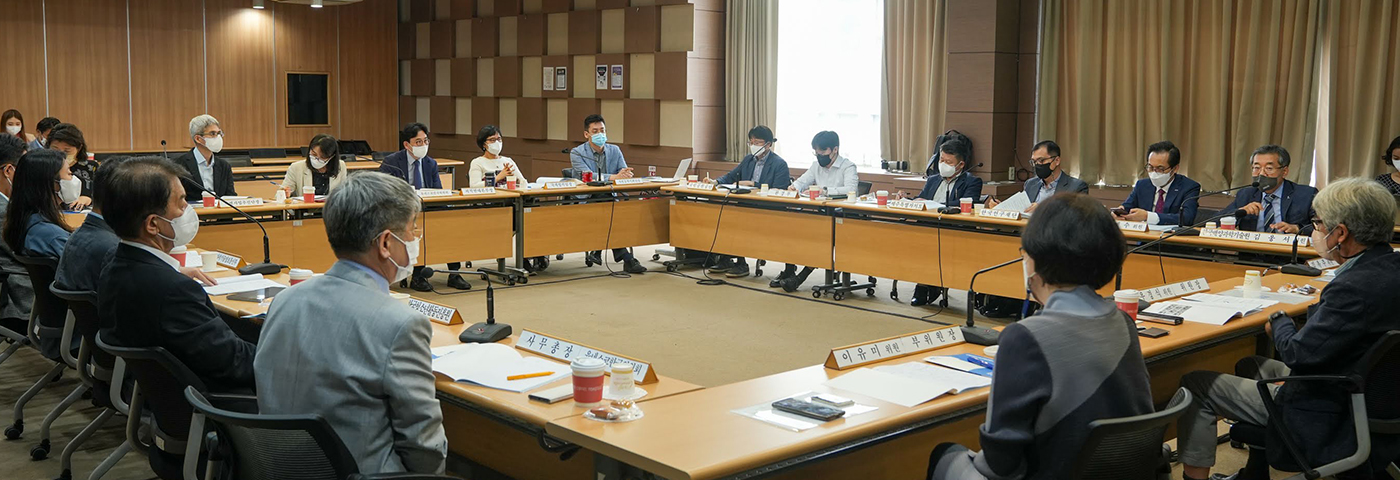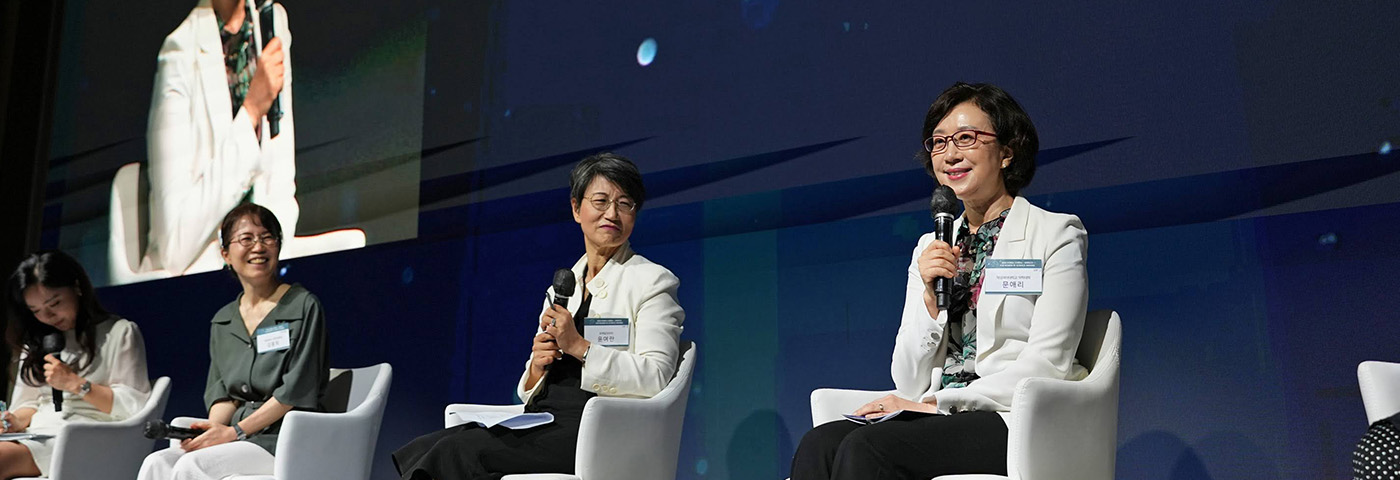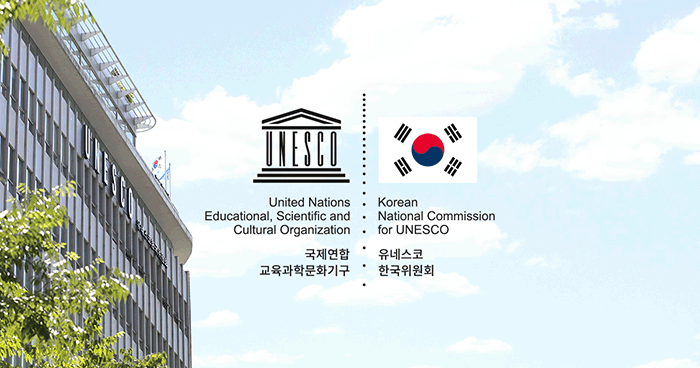Natural Sciences
The KNCU engages in diverse activities to promote domestic and international awareness and cooperation on implementation of the Sustainable Development Goals in the fields of water, biodiversity, ocean, geoscience, and science policy.
- UNESCO’s Intergovernmental
Scientific Cooperation -
 One of the aims of UNESCO’s international/intergovernmental scientific programmes is to forge international cooperation in scientific fields that require it. The KNCU supports the activities of Korean institutions, groups and experts in relation to UNESCO’s scientific programmes, including the International Hydrological Programme (IHP), the Man and the Biosphere (MAB) Programme, the Intergovernmental Oceanographic Commission (IOC) and the International Geoscience and Geoparks Programme (IGGP).
One of the aims of UNESCO’s international/intergovernmental scientific programmes is to forge international cooperation in scientific fields that require it. The KNCU supports the activities of Korean institutions, groups and experts in relation to UNESCO’s scientific programmes, including the International Hydrological Programme (IHP), the Man and the Biosphere (MAB) Programme, the Intergovernmental Oceanographic Commission (IOC) and the International Geoscience and Geoparks Programme (IGGP).
-
Man and the Biosphere (MAB) Programme
The KNCU works in collaboration with the MAB National Committee of the Republic of Korea to support activities to maintain and enhance domestic Biosphere Reserves, and promote international cooperation to enhance Biosphere Reserves globally. Currently, the Republic of Korea has nine Biosphere Reserves: Mt. Seorak, Jeju Island, Sinan Dadohae, Gwangneung Forest, Gochang, Suncheon, Gangwon Eco-Peace, Yeoncheon Imjin River, and Wando Archipelago Biosphere Reserve. With the assistance of the Ministry of the Environment, the KNCU also supports the activities of the East Asian Biosphere Reserve Network (EABRN) through a funds-in-trust project to promote cooperation among the East Asian member countries (the Republic of Korea, the Democratic People’s Republic of Korea, Japan, China, Russia, Mongolia, and Kazakhstan). The KNCU also provides advice to Jeju Island concerning the latter’s activities in connection with the World Network of Island and Coastal Biosphere Reserves.
-
Intergovernmental Oceanographic Commission (IOC) and International Hydrological Programme (IHP)
The Republic of Korea is a council member of the IOC and the IHP, UNESCO’s intergovernmental organizations in the field of water, and extends support to the international activities of these organizations. In particular, it assists the UNESCO International Centre for Water Security and Sustainable Management (i-WSSM), which was established in June 2017, in its work to strengthen the capacities of developing countries to address issues relating to water security and to support UNESCO’s other activities in this area.
-
International Geoscience and Geoparks Programme (IGGP)
The KNCU contributes to activities to preserve geological diversity by helping sites that are geologically worthy of preservation to apply for designation as UNESCO Global Geoparks.The KNCU also advises on Geopark activities, supporting activities that help communities near such sites to develop in a sustainable manner, so that these communities can benefit from their geological heritage while preserving it. Currently, Jeju Island, Cheongsong, Mudeungsan, and Hantangang River are designated as UNESCO Global Geoparks in the Republic of Korea.
The KNCU also supports geoscience projects in other countries and facilitates the participation of Korean researchers in such projects.
관련자료
-
Man and the Biosphere (MAB) Programme
- UNESCO’s Scientific Research Activities
-
 The KNCU seeks to enhance public awareness of the SDGs and contribute to their implementation in South Korea by participating in UNESCO’s research projects in each scientific field.
The KNCU seeks to enhance public awareness of the SDGs and contribute to their implementation in South Korea by participating in UNESCO’s research projects in each scientific field.
-
Implementation of the SDGs by UNESCO’s scientific networks
The KNCU works in close cooperation with UNESCO’s scientific networks to encourage implementation of the SDGs and international cooperation more generally. In 2017, the KNCU conducted joint studies with UNESCO’s scientific networks, including MAB, IHP, IOC and IGGP, to explore ways to implement the SDGs in the Republic of Korea. Based on the findings, the KNCU is working with the MAB National Committee of Korea on ways to contribute to SDG 15 (“protect, restore and promote sustainable use of terrestrial ecosystems…”).
-
Exploration of ways to contribute to UNESCO’s scientific programmes
South Korea is already a council member of UNESCO’s intergovernmental scientific programmes such as MAB, IHP and IOC, and strengthens its cooperative ties with UNESCO by providing UNESCO with manpower and financial support. One of the KNCU’s roles is to explore ways to make South Korea’s contribution to UNESCO’s scientific networks more visible and to promote South Korea’s active engagement in policy-making procedures.
관련자료
-
Implementation of the SDGs by UNESCO’s scientific networks
- Support for UNESCO’s scientific
activities in the Republic of Korea -
 To invigorate UNESCO-related scientific activities in South Korea and strengthen ties with UNESCO in the various fields of science, the KNCU seeks various ways to cooperate with UNESCO headquarters and regional offices, Category II Institutes, and UNESCO Chairs programmes, as well as South Korean government agencies and institutions.
To invigorate UNESCO-related scientific activities in South Korea and strengthen ties with UNESCO in the various fields of science, the KNCU seeks various ways to cooperate with UNESCO headquarters and regional offices, Category II Institutes, and UNESCO Chairs programmes, as well as South Korean government agencies and institutions.
-
UNESCO’s science networks
The KNCU lends supports to the International Center for Water Security and Sustainable Management (i-WSSM, a Category II Institute in the field of science located in South Korea) and UNESCO Chair programmes in South Korea (such as the Chair in philosophy at Seoul National University, the Chair in future civilization at Kyunghee University, and the Chair in the development of youth through sports at the Korea Institute of Sport Science). KNCU’s role as a member of the Korea Oceanographic Commission, the National Geoparks Committee and the national commissions on MAB and IHP also helps it to promote UNESCO-related activities at these institutions.
-
UNESCO Prizes and Awards in Science
KNCU raises awareness in the Republic of Korea about UNESCO Prizes and Awards in Science, such as the L’Oréal-UNESCO Award for Women in Science, the Kalinga Prize for the Popularization of Science, the Carlos J. Finlay Prize for Microbiology and the Sultan Qaboos Prize for Environmental Preservation, and calls for South Korean nominees for these awards..
관련자료
-
UNESCO’s science networks



.png)



